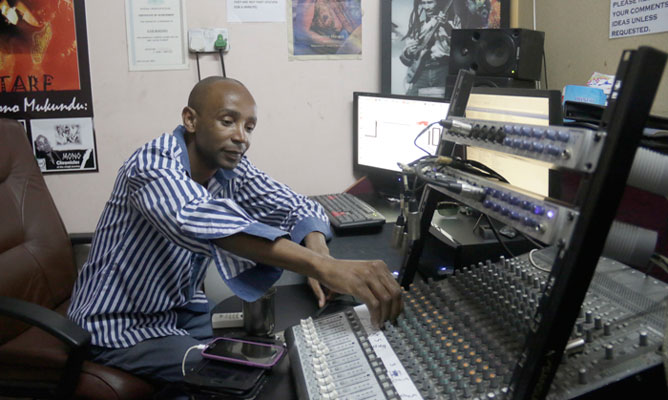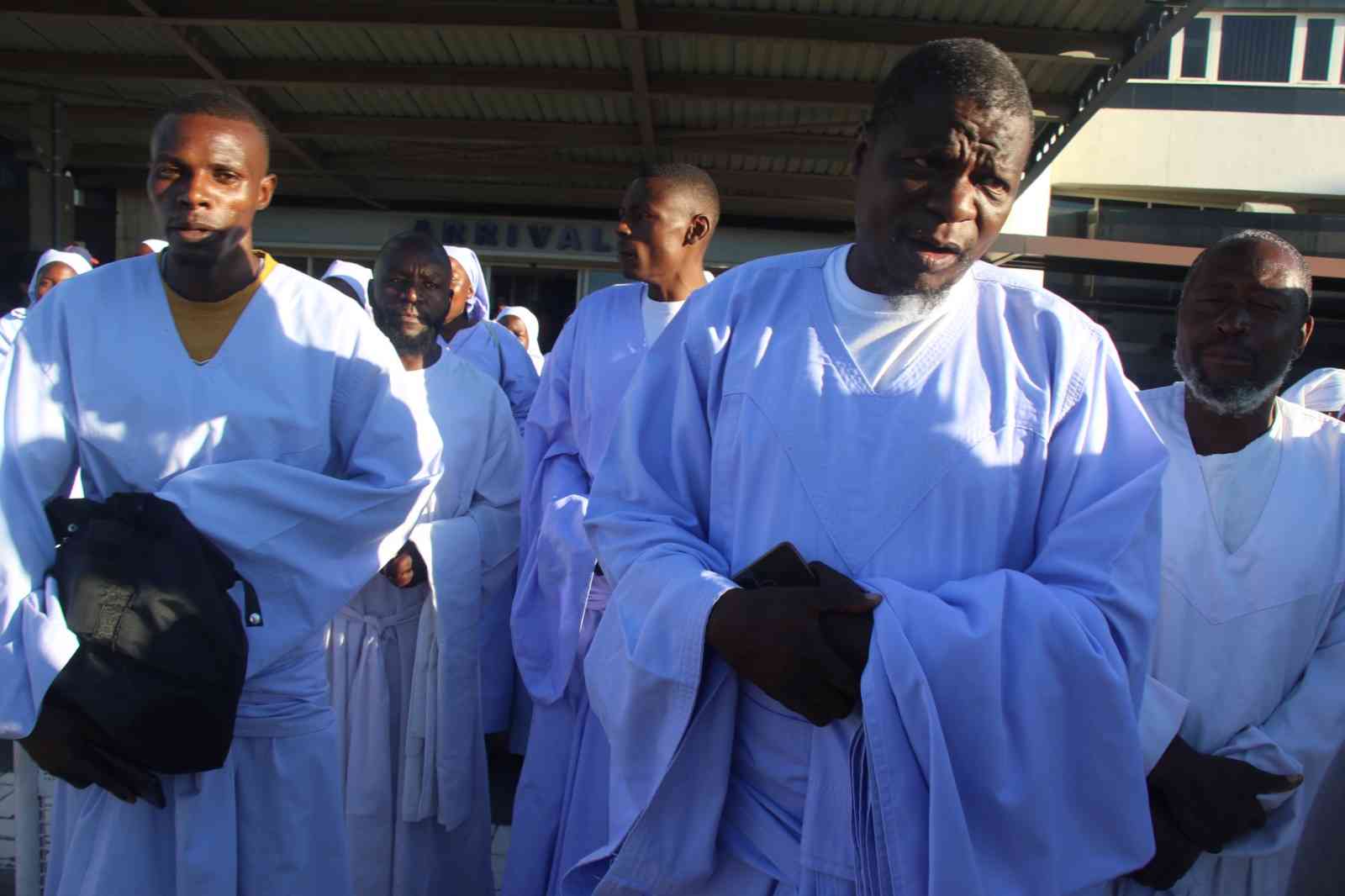
As he narrates the genesis of his 30-year music career journey, veteran producer Clive “Mono” Mukundu gives vivid details coupled with exact dates.
By Kennedy Nyavaya
In the past three decades the decorated music maker has seen it all from being told he was not good enough to be among the top local musicians.
But, his history, similar to many accomplished stars, is that of strife and discouragement, which he had to conquer or opt for a day job.
“The inspiration was inborn because I remember when I was born to around the age of five years when I would feel ecstatic to see someone with a guitar,” Mukundu told The Standard Style on Thursday.
It was at such a tender age when he started playing handmade guitars that he took the decision to venture into music as he grew up, but his parents had planned otherwise. “My parents, especially my father, never liked it so each time they saw me playing a guitar he would beat me as punishment,” he recalled how his father had wished him to be a teacher as music was considered an unworthy occupation for irresponsible people.
“My father was a serious critic of being a musician to an extent he would hurt my feelings, so I ended up with an urge to prove that I could be a musician and a respected responsible father.”
From politely convincing his parents that he was destined to be a musician to learning to strum the strings under the tuteelage of the late Last Saidi, he somewhat met instant retribution for being stubborn as an attempt to go professional suffered countless false starts.
- Chamisa under fire over US$120K donation
- Mavhunga puts DeMbare into Chibuku quarterfinals
- Pension funds bet on Cabora Bassa oilfields
- Councils defy govt fire tender directive
Keep Reading
“From those lessons in 1988, I started teaching myself and then in the same year I had improved enough to start a band named Sarungano Chanters,” he said.
“With this group, we went for several live auditions at Gramma Records who would not record you without passing and after 10 successive auditions, we failed despite the effort and spirited walks from Kuwadzana to Southerton where the studio was.”
The group eventually split and so did the next one the following year, but Mukundu was far from giving up. instead he started writing journals detailing this history with inspiration from biographies of well-established musicians like his favourite Bob Marley whose beginning was not rosy.
“I had noticed that it is not easy in the music industry because some of the greats had gone through rejection and while other band members gave up I cannot blame them because with no support from family and no attention from others in the industry, it was very hard,” he said.
However, when he got born-again in 1994 there was a major change with church in the picture as he would play for the likes of gospel songstress Ivy Kombo, Fungisai Zvakavapano-Mashavave, Elias Musakwa and the Egea Gospel train.
“In 2003 after my stint with the churches and passing through the Zimbabwe College of Music for two years, I joined Oliver Mtukudzi’s band and we worked for four years during the period, which I started buying my studio equipment,” he said.
Whether by coincidence or proper planning, when he was “fired” from the Black Spirits, he rushed straight into the studio where he has produced for thousands of artistes for over a decade.
Meanwhile, to celebrate his 30-year milestone he will on March 21 launch his 10th music album, a DVD guitar tutorial and a book titled Poor and Famous at a joint in Harare.
Despite his huge contribution to local music, he believes the quality continues to nosedive mainly because of the absence of proper music systems.
“If there was ever a most uninspiring period for music producers, it is right now because no one wants to be corrected when they are paying for the service and that alone is one of the biggest factors that has made our music drop in standards,” said Mukundu.
“I can say that the standard composed locally now has gone down and this because now it is the artistes who have creative control.”
According to Mono, the old system which gave producers creative control made sure that only the best artistes would get a chance to record but now because of economic hardships, recordings are only based on being able to pay studio session fees alone.
This is what has caused the bulk of local musicians’ work unattractive beyond local borders virtually making famous paupers out of them, a trend which inspired his second book.
“I noticed that a lot of people in Zimbabwe associate fame with riches because they see what happens in other countries, but here it’s a different scenario where someone can be very famous yet broke,” he explained.
The country is in economic turmoil and as a producer of note, he has also been affected by the situation:
“The most affected by the economic situation is us musicians and the industry is currently in the intensive care unit, but at least we are alive so I cannot say I am there, but I am comfortable.”
Going forward, Mono believes the only way out is employing innovation in addition to talent, which cannot make one successful if not aided by different ideas to make a brand grow.











